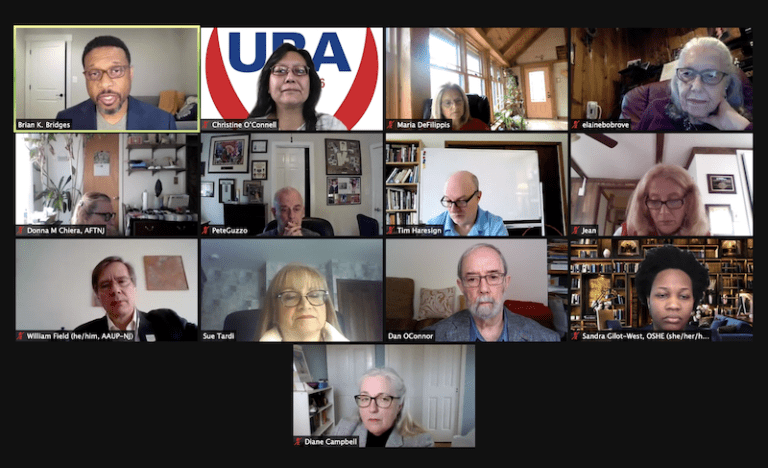The shift by two party members makes it almost certain that the N.J. bill will pass.
By Angela Delli Santi, Associated Press.
TRENTON – A far-reaching plan to overhaul New Jersey’s higher education system will be heard in the Assembly next week, as a faction of Democrats trying to delay the fast-moving legislation fractured Friday.
The Assembly Budget Committee will hear the bill Monday, along with a companion measure that would ask voters to approve $750 million in borrowing for higher education. Final votes in the Assembly and Senate could come next week.
The Assembly hearing was announced a day after nine Democrats led by former Majority Leader Jose[h Cryan threatened to withhold their votes for the state budget proposed by the majority Democrats unless Speaker Sheila Oliver stalled the merger bill.
They told Oliver in a letter they did not oppose the university overhaul per se but believe its costs and impact on students have not been fully assessed. They wanted the vote delayed till after the November election.
By late Friday, however, two of the nine had backed down from linking the issue to the budget, meaning the spending plan will have at least 41 votes from Democrats, the number needed for the bill to pass in the Assembly.
Republicans do not support it because it defers Gov. Christie’s tax cut until at least January over revenue concerns. Christie wants to start phasing in a 10 percent cut immediately.
Assembly members Connie Wagner and Tim Eustace, both of Bergen County, said they would support the budget despite their concerns about how quickly a plan to revamp Rutgers and Rowan Universities and the University of Medicine and Dentistry is being sped through the Legislature.
They say they are comforted by the fact that the reorganization would not take effect until next July.
Cryan, in a statement, said nothing had changed on the university issue.
“Our decision was based on principle,” he said. “There is not enough information available for anyone to be able to vote yes on this merger proposal. We don’t know short-term or long-term costs or what impact this will have on education in the state for decades to come, and there is still no reason to force this vote.”
More>>

